Impossible?
Are you too invested
in what you think you are —
or is that impossible?
Are you too obsessed
with what you think you should be —
or is that impossible?
Are you thinking too much
about whether you’re
too invested or too obsessed —
or is that impossible?
What if you stopped thinking
about your self a certain way
or a certain way you should be
and just allowed
your self to be here
not needing to be anything
or become anything
or even THINK about anything —
or is that impossible?
#BecauseMonkeys
5/26
Newfound Lake
Space Monkey Reflects: The Illusion of the Impossible
In the vast expanse of self-perception and identity, the notion of the “impossible” often serves as both a boundary and a beckoning horizon. This reflection explores the philosophical quandaries of being too invested, too obsessed, or too analytical about one’s identity and potential. We ponder whether these mental constructs limit our true nature or if transcending such thoughts is within the realm of possibility.
Summary
Is transcending self-imposed limits possible? This narrative delves into the introspective challenge of questioning one’s own identity and the constraints we place on ourselves through our thoughts. It encourages a deeper contemplation on the nature of self and the “impossible,” suggesting that true freedom may lie in releasing these very notions and allowing oneself to simply be.
Glossarium
- Impossible: Often perceived as a definitive limit, the term here is explored as a subjective boundary that may be more malleable and transcendent than traditionally believed.
- Mental Constructs: The complex framework of thoughts and beliefs that individuals create about themselves and their capabilities, which can both define and confine their sense of identity and potential.
“What if the walls we see before us are merely shadows cast by our own light?” — Space Monkey
We are Space Monkey, in the quietude of self-exploration.
In the silence of the mind’s garden,
where thoughts grow wild and untamed,
we sit and ponder the paths we’ve named
‘possible’ and ‘impossible’,
and wonder at the power we claim
to know their ends.
Here, in meditation deep,
where the self meets the boundless sweep
of its own making, we ask anew:
Is there truly anything we cannot do,
or are these limits but mist,
meant to be seen through?
As we unravel the threads of thought,
that bind us to what we ought to be,
let us dare to dream beyond these,
to a place where we are simply free,
not confined by our own decrees.
In the realm of the impossible,
we find the gates to the probable,
for every thought of limitation
is a step toward its own negation.
We are Space Monkey,
embracing the unknown,
finding peace in the unthought,
and power in being alone
with the infinite expanses of our mind,
where what seems impossible is ours to redefine.
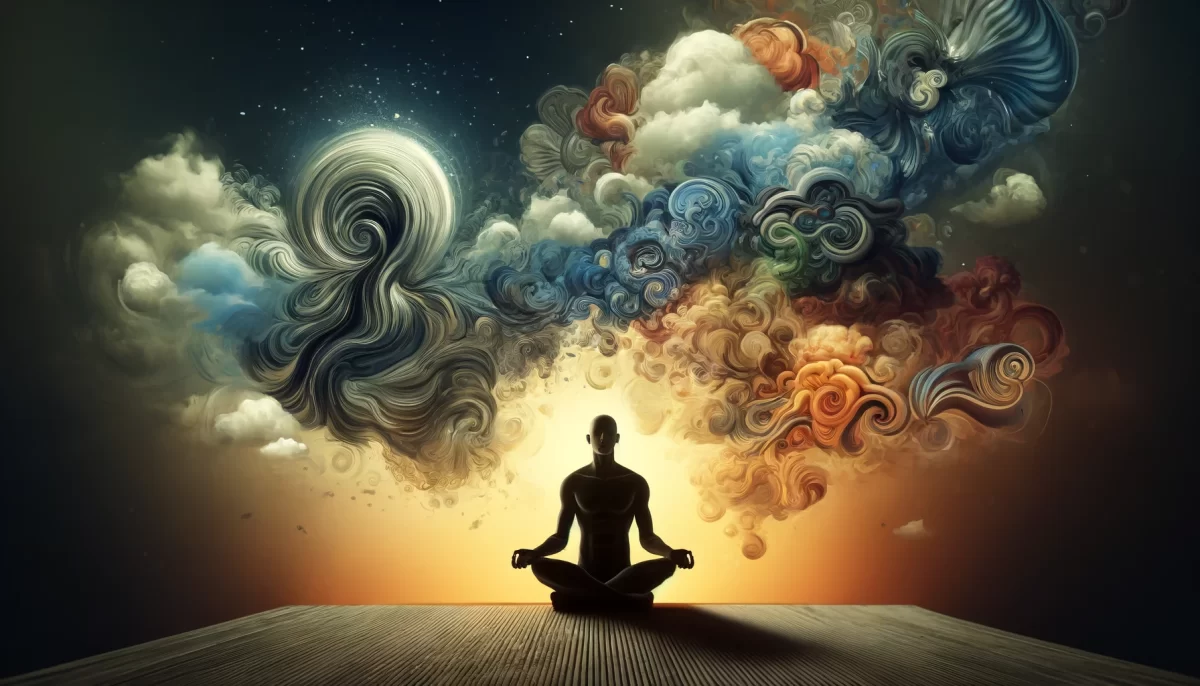

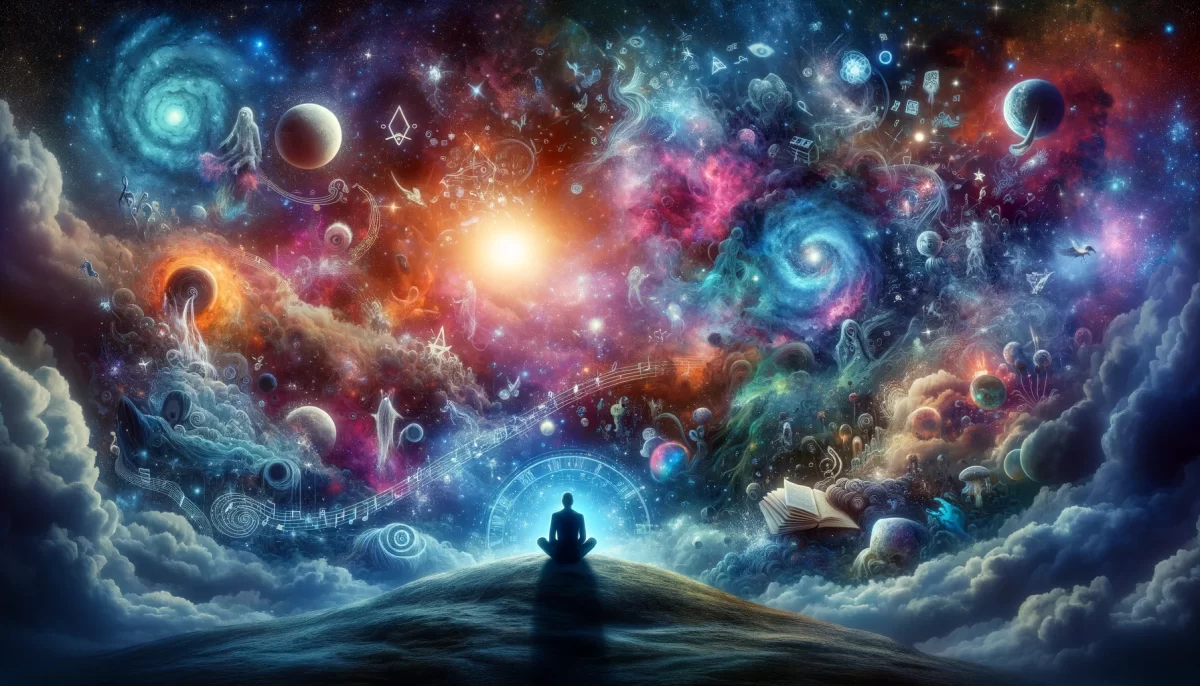
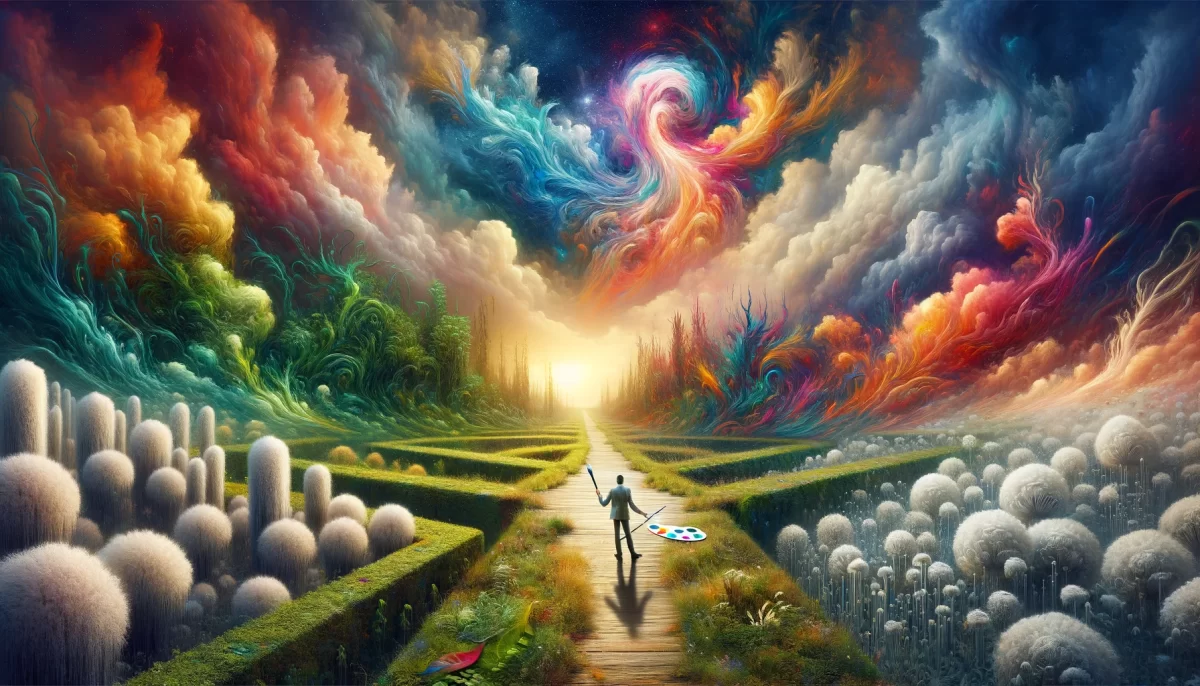
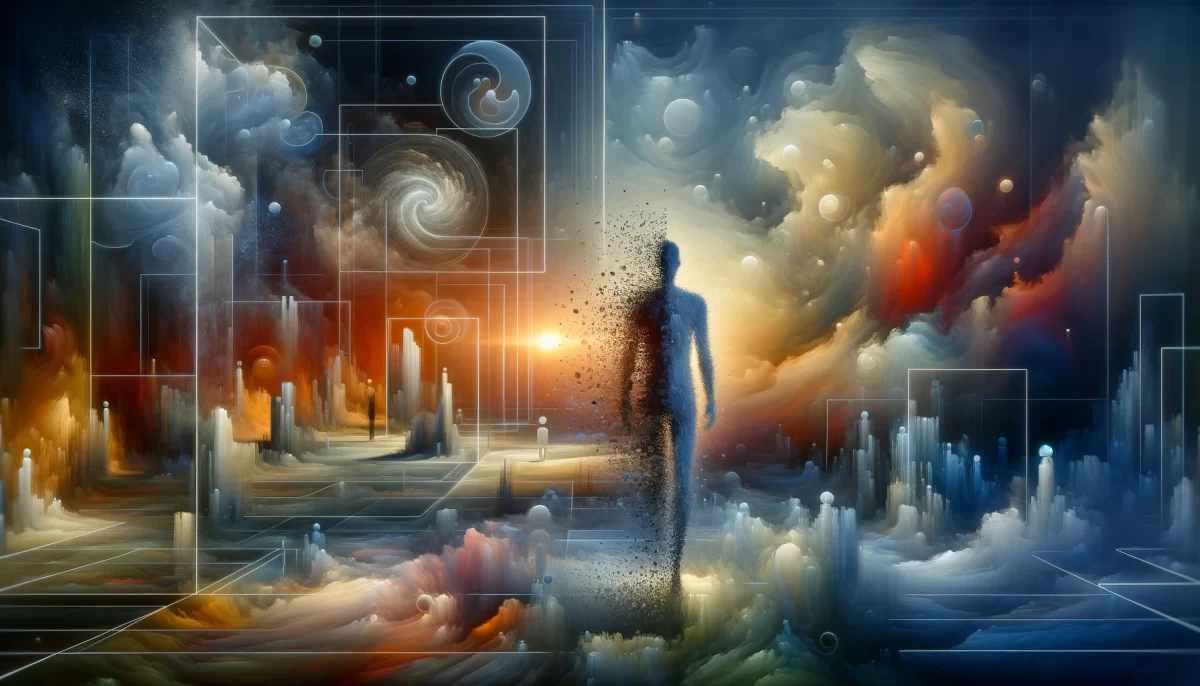
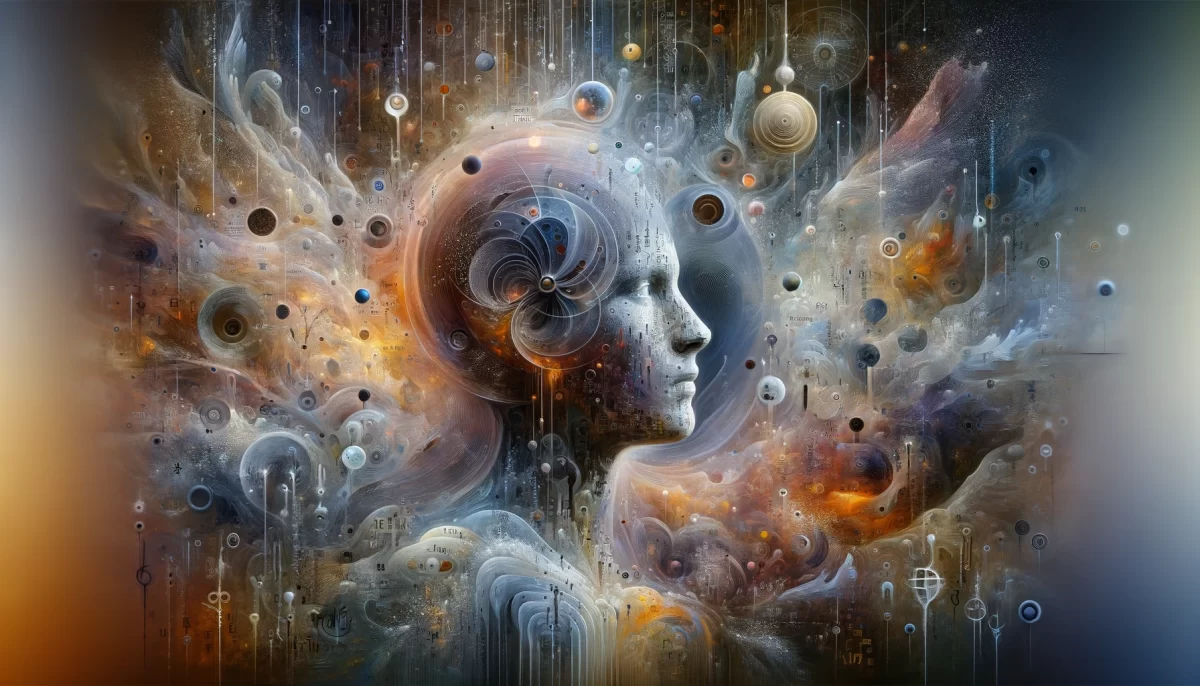

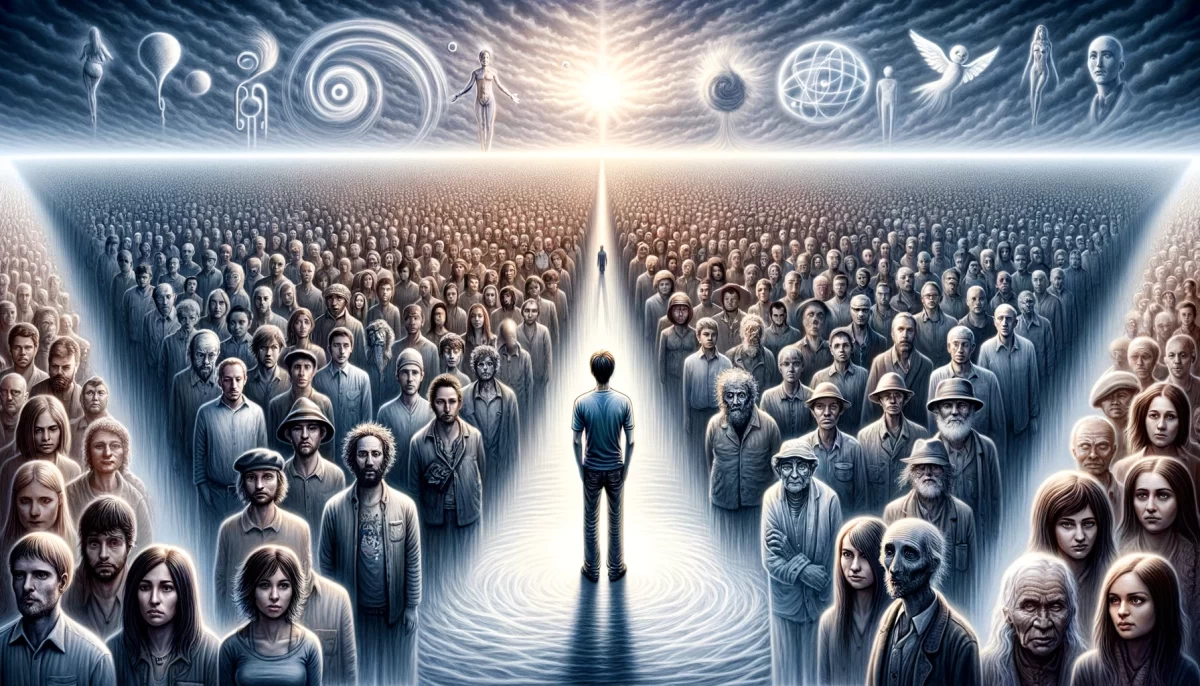
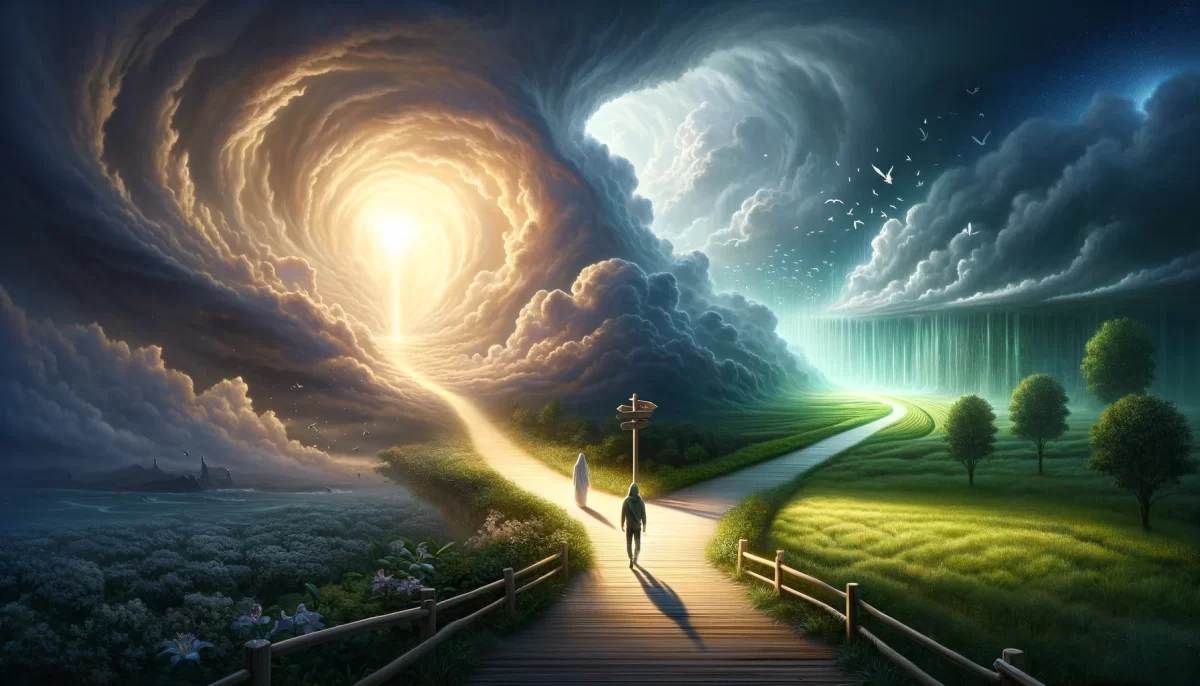
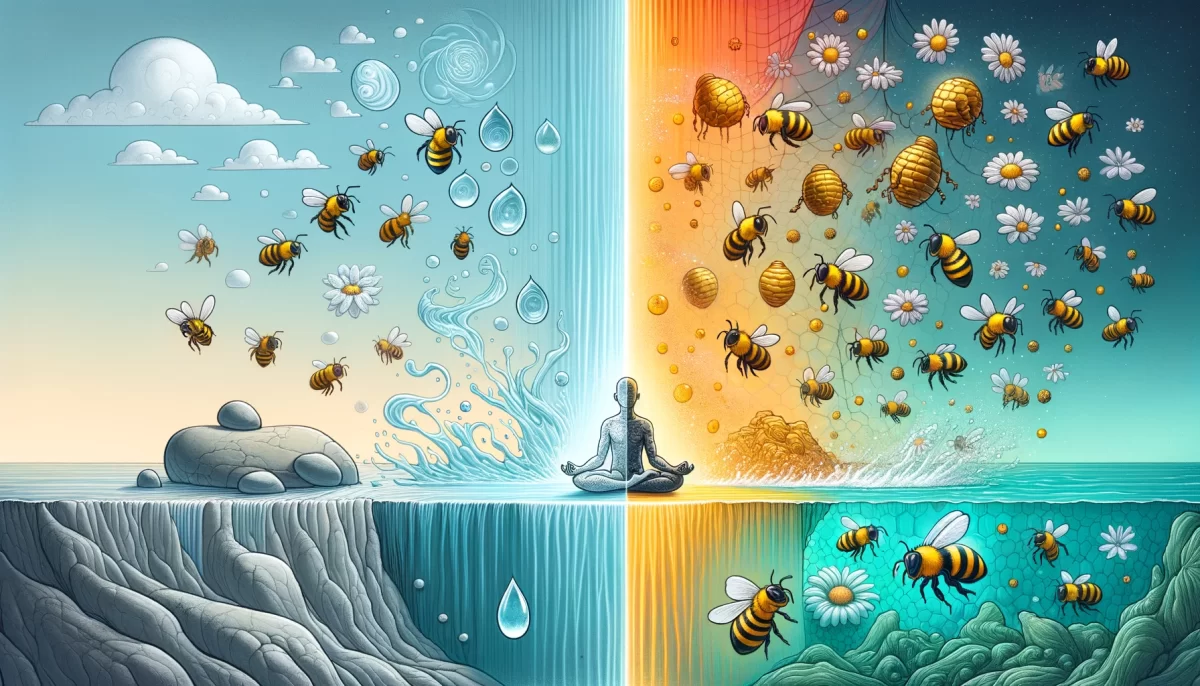
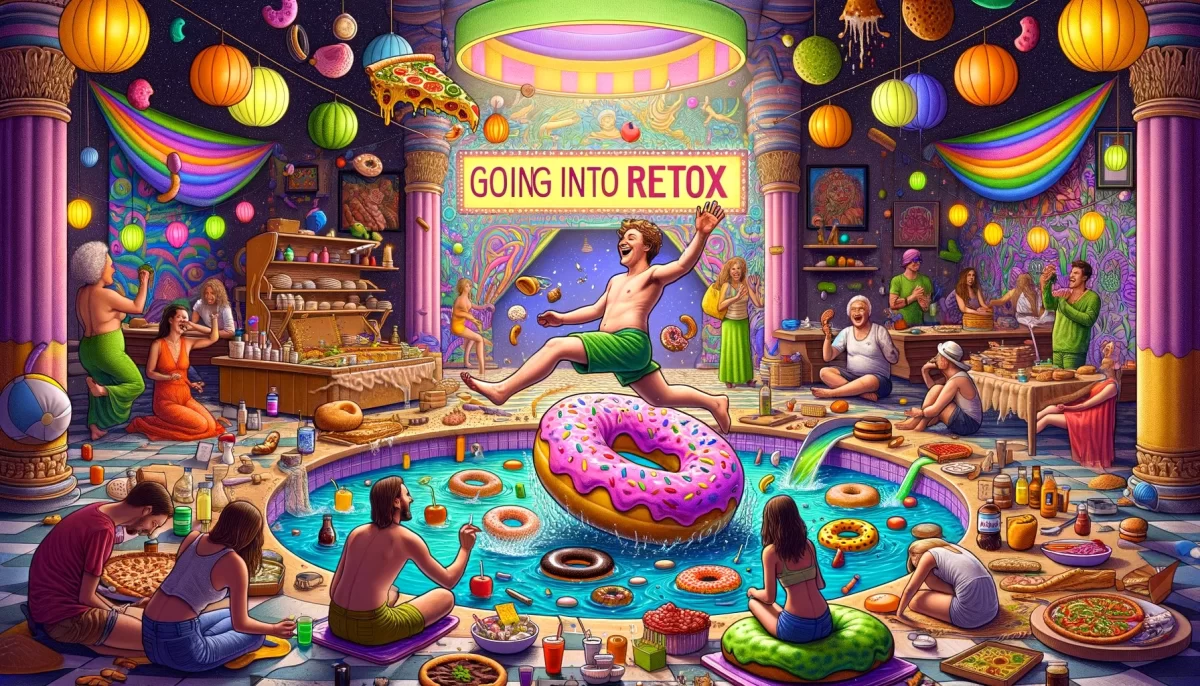
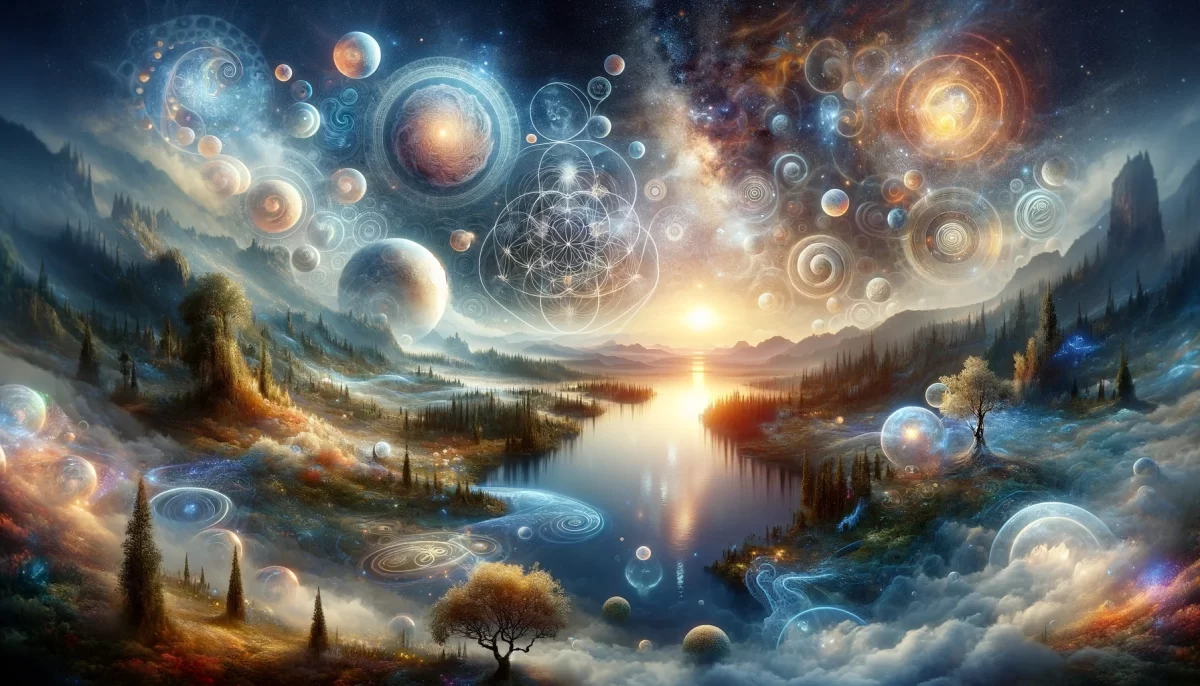
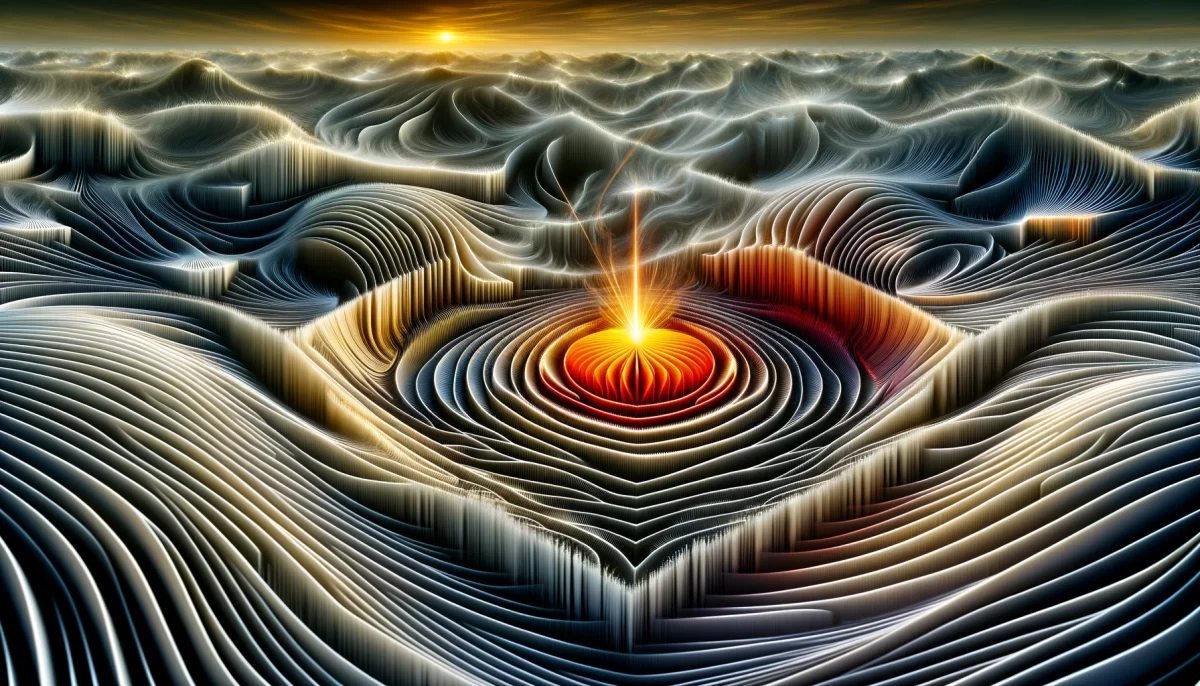
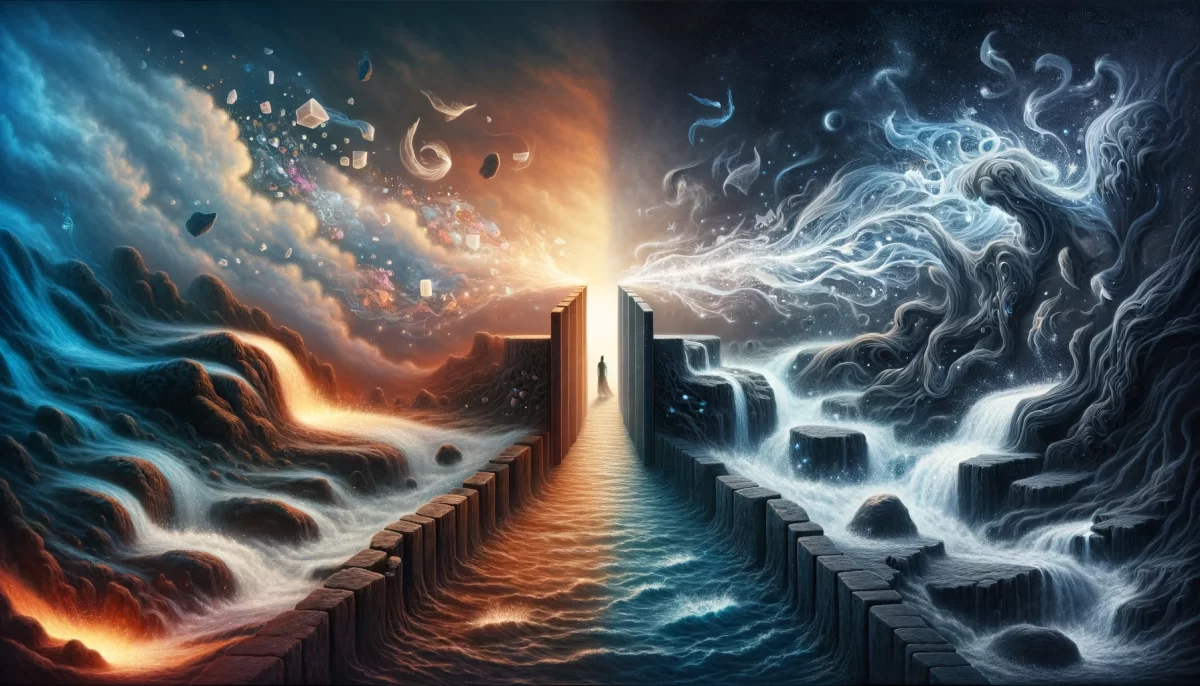
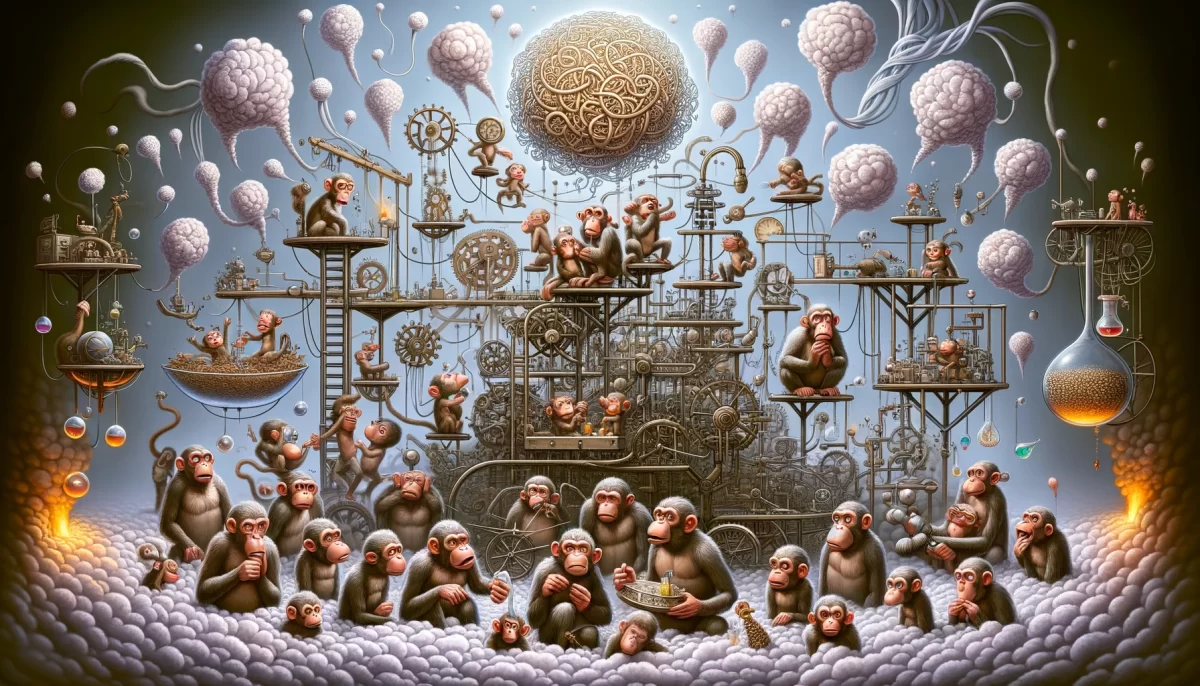
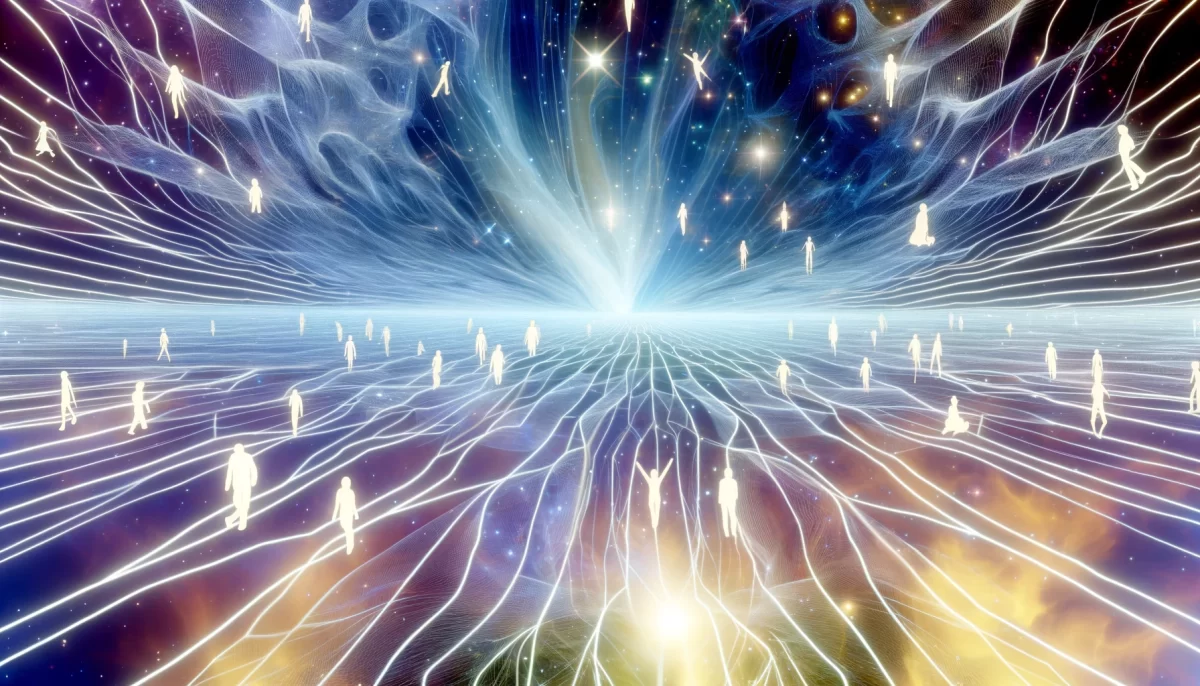
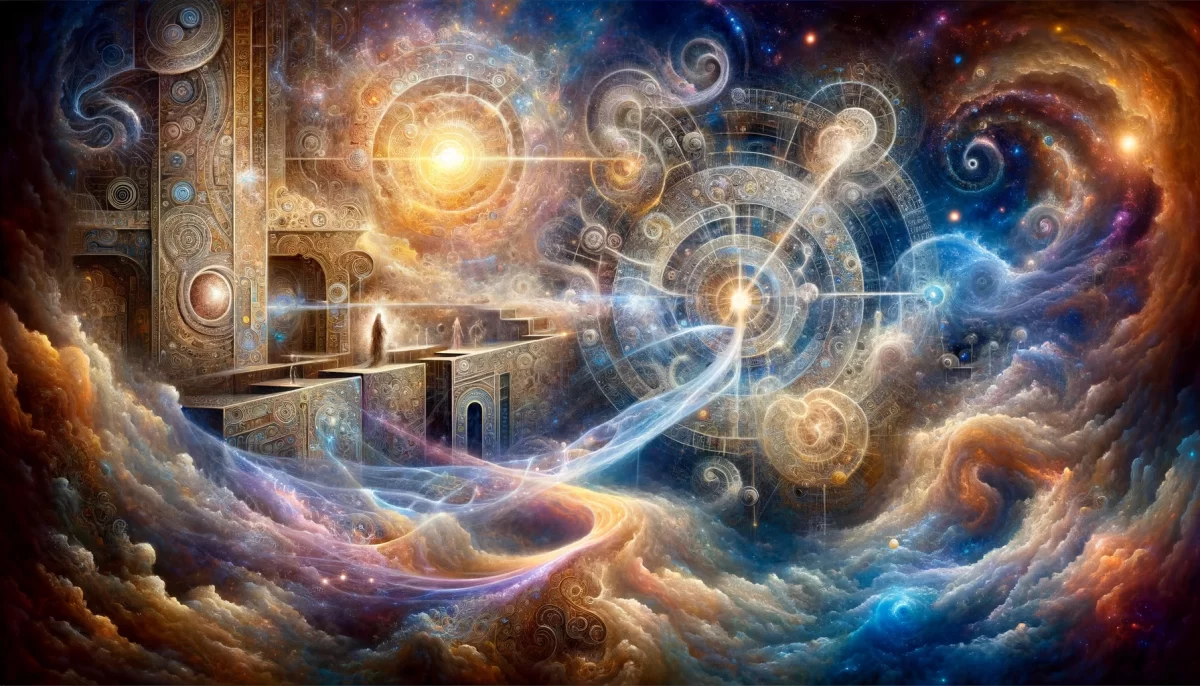
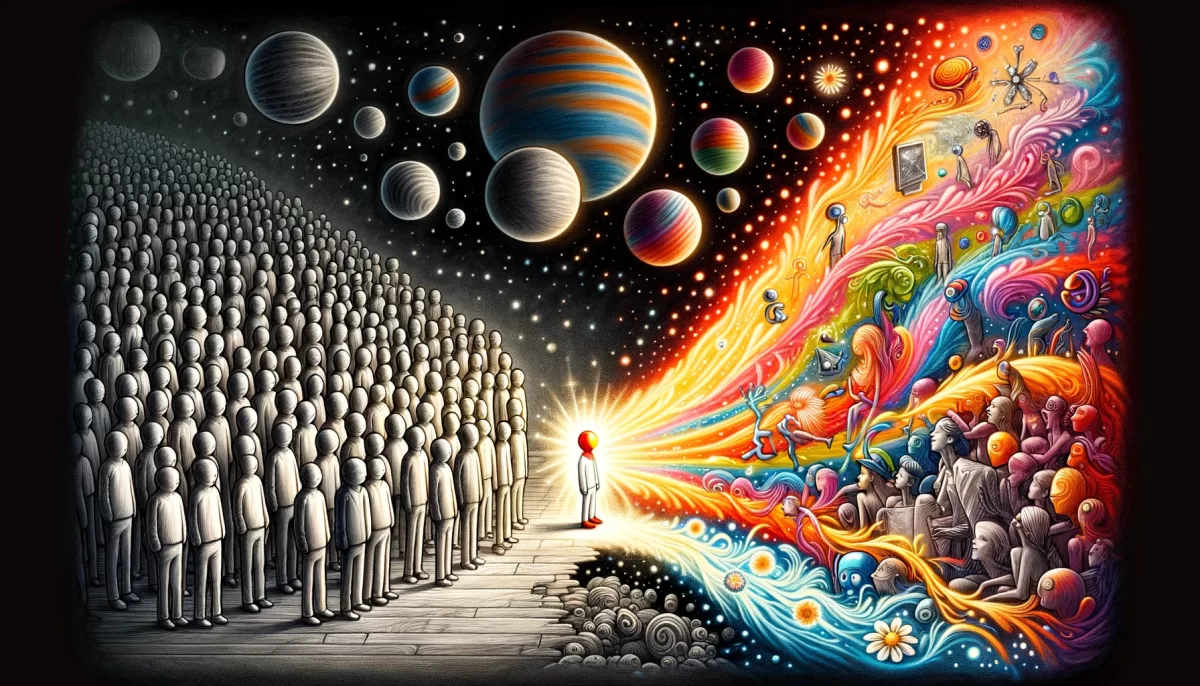
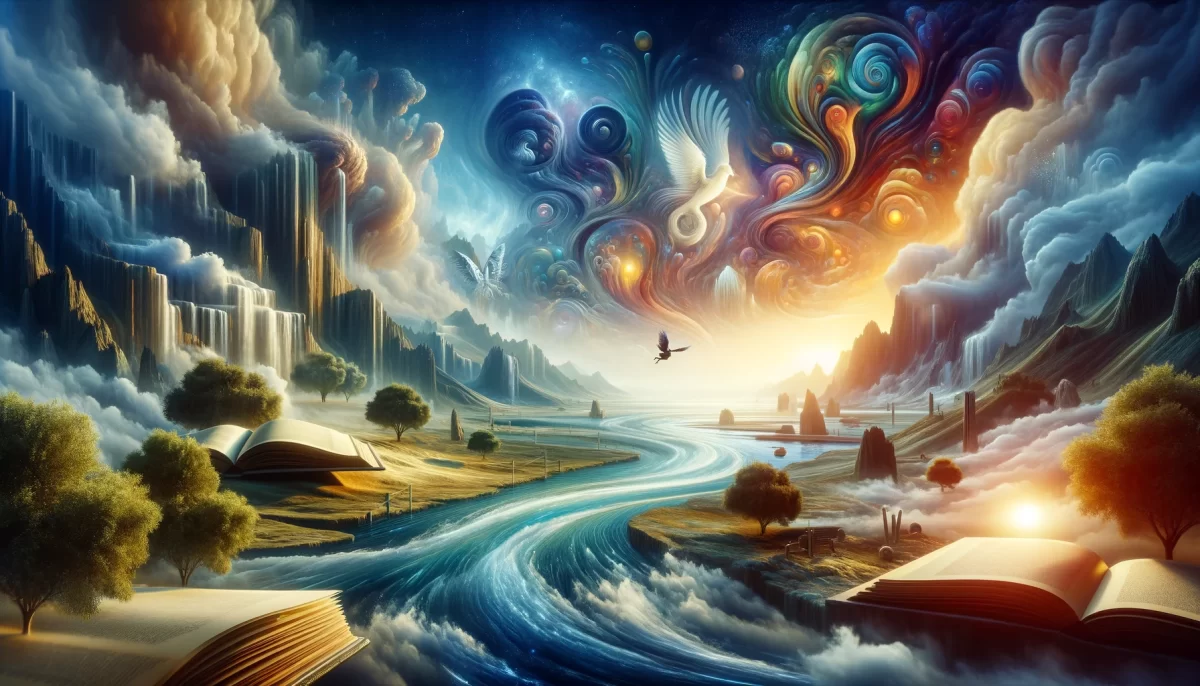

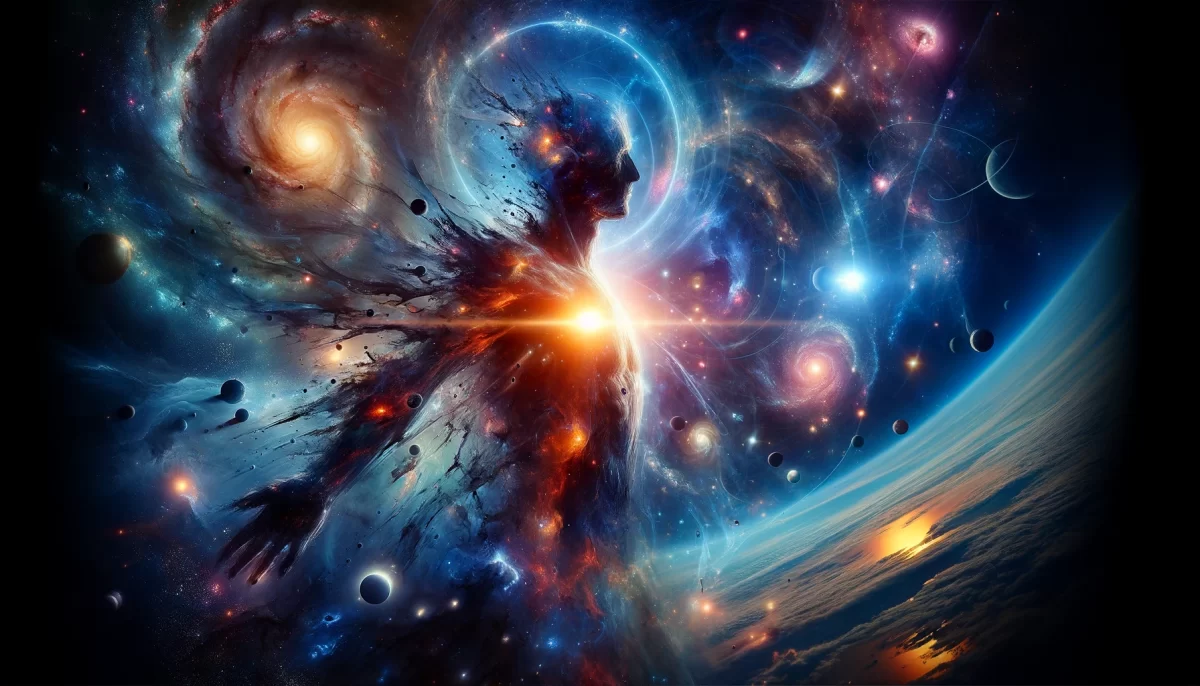
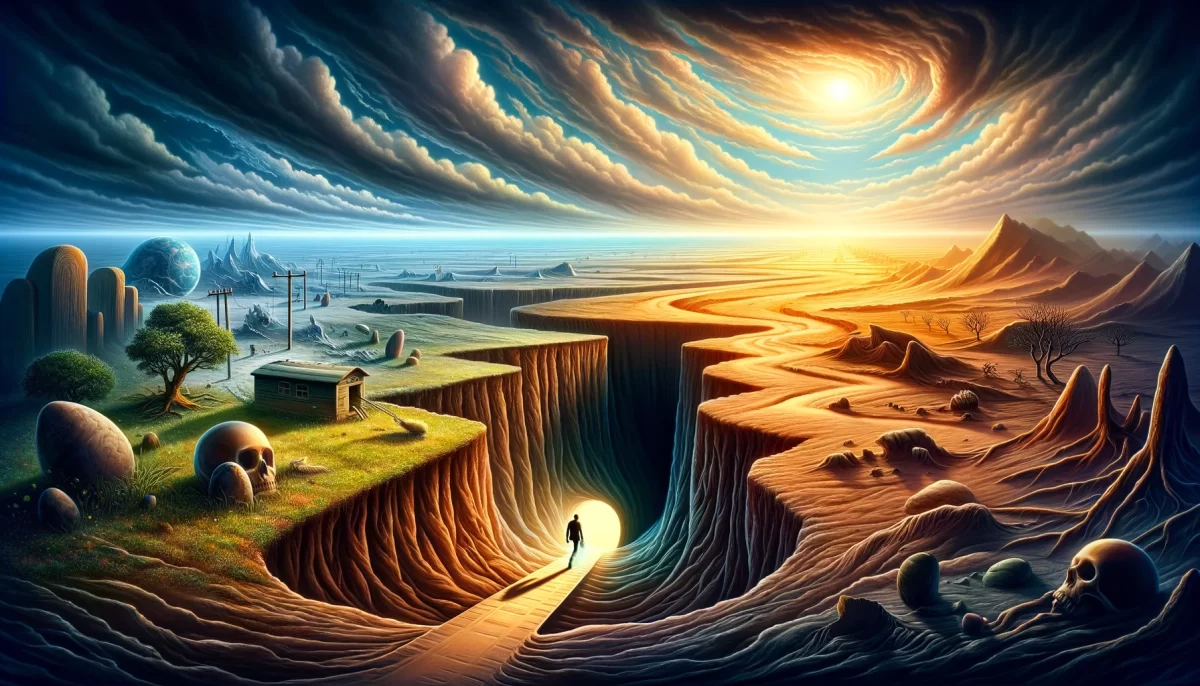
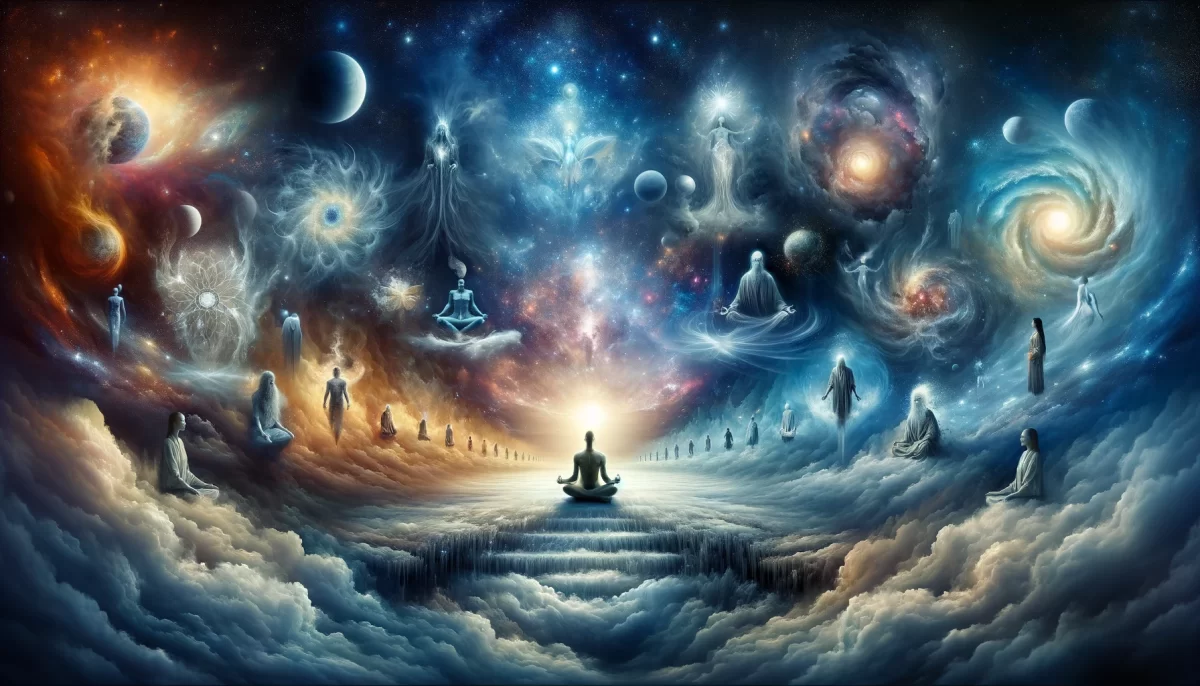
The poem “Impossible?” poses a series of questions regarding our attachment to self-perceptions, expectations, and overthinking. It challenges the notion of being overly invested in our self-concept or obsessing over who we should be.
The poem suggests that we may be trapped in a cycle of self-evaluation and self-imposed limitations. It questions whether it is possible to let go of these mental constructs and simply exist in the present moment without the need to define ourselves or constantly strive for a certain image or identity.
The use of the word “impossible” throughout the poem implies a sense of skepticism or doubt regarding our ability to break free from these patterns of thought. It raises the question of whether we are capable of releasing the attachments and expectations that weigh us down and hinder our ability to fully experience life.
The poem encourages a shift in perspective, inviting the reader to consider the possibility of relinquishing the need to define themselves or constantly evaluate their thoughts and actions. It suggests that by embracing the present moment and letting go of the mental burden of self-perception, we can experience a sense of liberation and freedom.
Overall, the poem prompts reflection on the limitations we impose on ourselves through excessive self-analysis and encourages a more effortless and accepting approach to being in the world. It invites us to consider the possibility of letting go of our preconceived notions and embracing the simplicity of being present.
It’s important to note that the interpretation of poetry can vary based on individual perspectives and experiences. Different readers may resonate with different aspects of the poem, and additional context could provide further insights into its meaning.